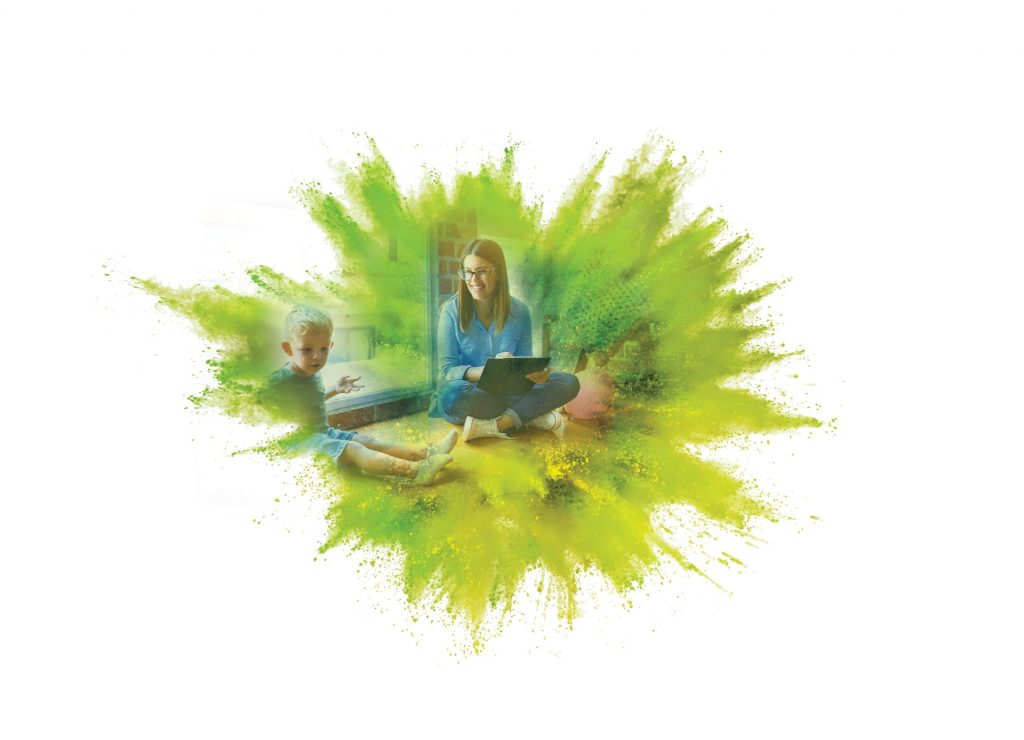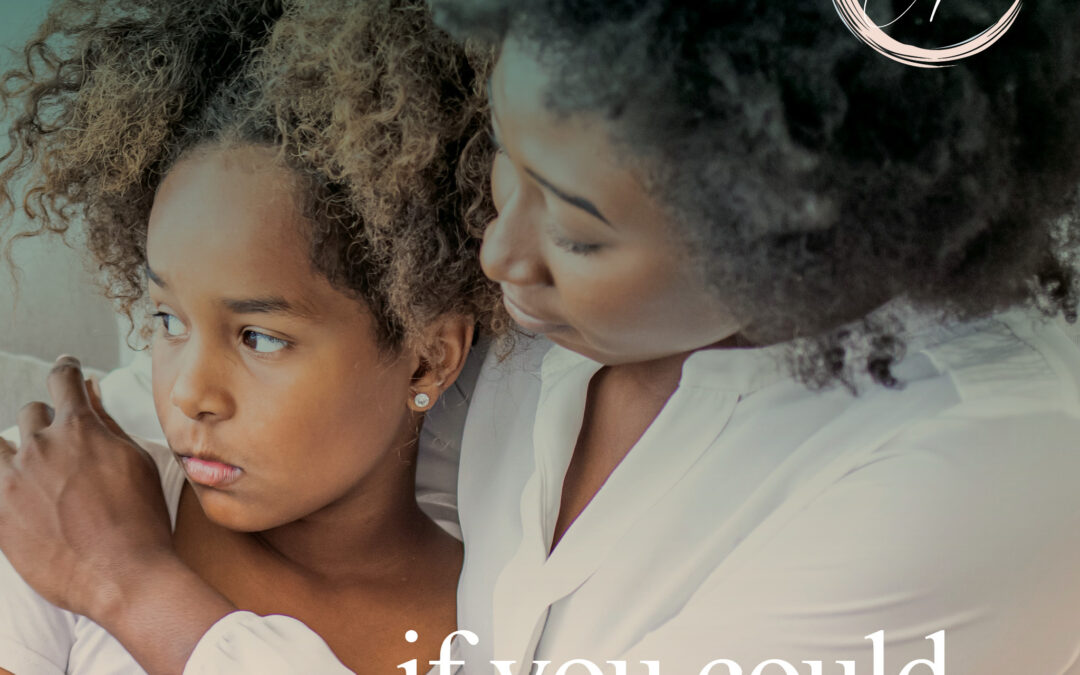
by Jessie Cooper | Jan 16, 2025
As with almost everyone, the holiday season swept me away – it had moments of joy and a whole lot of sickness. It was the season of celebrating togetherness while silently cursing the germs that come with that togetherness both at home and at work. I spent the latter part of December supporting our wonderful families and staff to figure out coverage where we could when members of our IABA family got sick. As the owner, though, I was supporting them through a double sinus infection and feel as though I’ve been healthyish for just two days now. ‘Tis the season to lose our routines and immune systems! With that, writing this new series took a back burner. I’m hopeful that in the new year I can bring more of these to you. So, where did we leave off? Oh yes, this belongs.
It is almost ironic to write that last sentence because of course holiday time and germs belong! But in the context of our series, we were unpacking parenting woes. Luckily the blog that has been churning in my mind goes right along with accepting what is here. In order to better understand acceptance, I’ve also been seeking to understand the shame that comes with parenting. I’ve been asking myself, “Where does shame come from?” While I am certain that each person’s shame story is unique, I am equally certain the root is the same. You see, shame tells us we are weird, bad, different, failing, alone, and not enough. Each person’s shame will uniquely personalize that shame to them. Fun, huh? But the effect of the shame is to separate us from others while casting judgement on ourselves. How then can we accept what is here for ourselves or our children while we are in shame? We cannot.
Wow! You might be thinking, “I just came out of a cookie coma and am riding home on antibiotics. Do we have to start that dark?” Well, kind of. But ultimately, no. You see, I need to lay the framework for what I’m about to write. I want you to remember that when you are hard on yourself (anyone else’s jeans tight?!) it is entirely human to default to feeling shame. If we can hold on to the truth that self judgement is not our fault, we can then get curious about what we are resisting.
While we could take this in many different directions today, I want to talk to you parent to parent. In our identity as a parent, shame can come roaring in when our children are struggling. This too belongs, but it does not have to stay. I almost feel shame writing this to you. To admit that when my children are struggling I can cast both internal and external judgement is hard! It is hard and incredibly human. You see, I believe that almost everyone is doing their best, but criticism comes when things go sideways. Being a parent is a surefire way for things to go sideways – often. Lucky for us that also means a whole lot of practice releasing shame and then accepting what is here as the first step forward, not sideways.
I do not believe difficult times with our children have to stay; I’ve built an incredible company on this principle. I do believe that we have to accept the reality of what is here to navigate our way out of the weeds. Shame diverts us; presence guides us. With that I want to leave you with a strategy to lift the grips of shame. As those grips release, we can then take a compassionate look at the amazing person, parent, child, and family before us. I live in one of those families and have the honor of serving over a hundred of them at IABA. Are you ready? I hope so.
To begin, make sure to get cozy. I recommend soft everything, a large glass of ice water, and some deep belly breaths. Now imagine yourself in the most challenging situation with your child. Pick either a past or recent moment when your child was struggling and you had no idea what to do. Now stop the memory, place a hand on your heart (and one on your belly to breathe) and instead of reacting to it, witness. Instead of feeling a victim to the moment and at odds with yourself and your child, just watch. Was your child in control? Did they want to be? Did you want to be? Now, in witnessing the moment, instead of judging the moment, play back how you would want your parenting moment to go. As you play back this moment, I am certain you want what is best for your child. Sit with that for just a moment. In your hardest moment with your child you were deeply caring about them. No, you did not show up with a solution. No, nothing is changing with these moments (yet) but if you could, you would.
That’s it, my darlings. That is the conclusion I have come to after almost two decades in practice and eight years as a mama. As I have sat and interviewed countless families, the caring for their children seeps through. When your child is struggling in a moment or in life, you as a parent want what is best for them. That is your truth.
If we all use this lens towards both ourselves and fellow parents, judgement and shame will melt away. As the shame melts, you will see the incredible parent you are, wanting what is best for your child even if you don’t know quite how to get there. Use this desire to want more for your family and reach for it. Offer compassion to that struggling mama in the grocery store. Know that we are all more the same than we are different. When we don’t know what to do, we can ask for help. And every step of the way remember, if you could change your child’s challenges, you would. It’s okay not to know what to do – this belongs. If you could do things differently, you would and someday you will.
Xoxo,
Jessie Cooper

by Jessie Cooper | Nov 22, 2024
In my last blog, I wrote about the importance of asking for help when our children are struggling. In sharing that we not only provide this type of support at Instructional ABA Consultants but that I’ve received it as a parent, I am hopeful you feel less alone. In my heart of hearts I believe that the biggest barrier to reaching for help is the barrier of “should.” When we, or our children, are struggling, shame pops right up with a tailored list of “you should…they should…” This narrative is both exhausting and defeating. It keeps us isolated and alone in our struggles. As the great Brene Brown states, “The only way to conquer shame is by shining a light on it.” Shame lives in the dark with us; connection melts it away.
This is my hope for you, darlings – that instead of sitting alone with your perceived list of failures as a parent, you sit in community realizing you’re not alone. Just this past week I was taking a walk to center myself before a difficult meeting. On the path was a young mom balancing her toddler on her back and her coffee. She was frazzled that if she put her coffee down she wouldn’t have it, but if she put her toddler down he would scream. I came up beside her and offered to carry the coffee while they made their way to the library. We walked this way for less than ten minutes but she shared, “No one ever talks about how hard this is! Every time I bring up on Instagram that I’m being screamed at for making waffles after he asked for waffles FIVE TIMES, I’m shut down with bids for happy stories.” I calmly shared that she’s not alone, she is honest, and I would be a rich woman if I had a dollar for every time I prepared the “wrong” food that I was badgered about. As I passed her coffee back – a screaming toddler was now at her feet – we thanked each other for the walk.
How many of us have been in this woman’s shoes? Either as a new mom or as a parent in a devastatingly hard moment, felt that the only thing the world wants is our smile? My initial reaction is to say that has never happened to me, that I’m great at the tough stuff! But it of course has. Whether it’s in public and I just want a controlled child at Costco or home when my children are having what seems like the zillionth fight at 6 am, I want that smile, too. Feels easier, right?
Sure – but it is also untrue. Whether our children are typically developing or developing differently from their peers, they are all this little bundle of untamed nerves, developing brains, wills of their own, and lived experience. Our children are divinely human, which means each messy part of them is showing itself at the exact right time. Yes, mamas, I’m chanting this to myself at 6 am but do not actually believe it until I’ve had my coffee with tears.
If we all expect our children to be happy and like the other children, we are silencing their truth. Just like the Instagram moms who shamed my new friend on the walk, we too shame our children when we cannot hold space for all their messy parts. Please do not misunderstand me. I do not think my, or your, children’s truth is that they are tiny barbarians who need to scream and hit before the sun has risen. In this scenario, my children’s truth is (ugh), “Mama, I’m too little to do the morning on my own. Will you get up with me?”
Wouldn’t it be nice if they asked that sweetly? Unfortunately, young children are almost purely limbic systems and their words come out in behaviors. When our children are struggling, their truth is just that “I am having a hard time.” Shaming them with a smile or expectation of perfection will silence them. Shining a light on their struggle with love, care, and guidance will plant the seeds for regulation even if it takes years to bloom.
Years, you say? You expect me to walk this turbulent path for years? In short, yes, but also no. You see, I can’t change for anyone that life is both deeply beautiful and breathtakingly painful. That is life. However, we don’t need to walk that path either blindly or alone. If we can force ourselves to witness the struggles in front of us without reacting to them, we can see them as they are. When we witness these struggles, we can then access something incredible – compassion.
In the throes of shame, it is impossible to access compassion for ourselves and our children; we’re too stuck in what shouldn’t be happening instead of what is. Compassion allows us to feel deeply that our struggle both belongs and is a struggle. So, my darlings, the next time you feel alone and tear-streaked, I challenge you this: place your hand against your heart and whisper, “This belongs,” and see if you melt a little into the moment that is. Then, take your brave soul towards your struggling child and remember, “This belongs, too.” The path to healing is rooted in your truth.
Xoxo,
Jessie Cooper
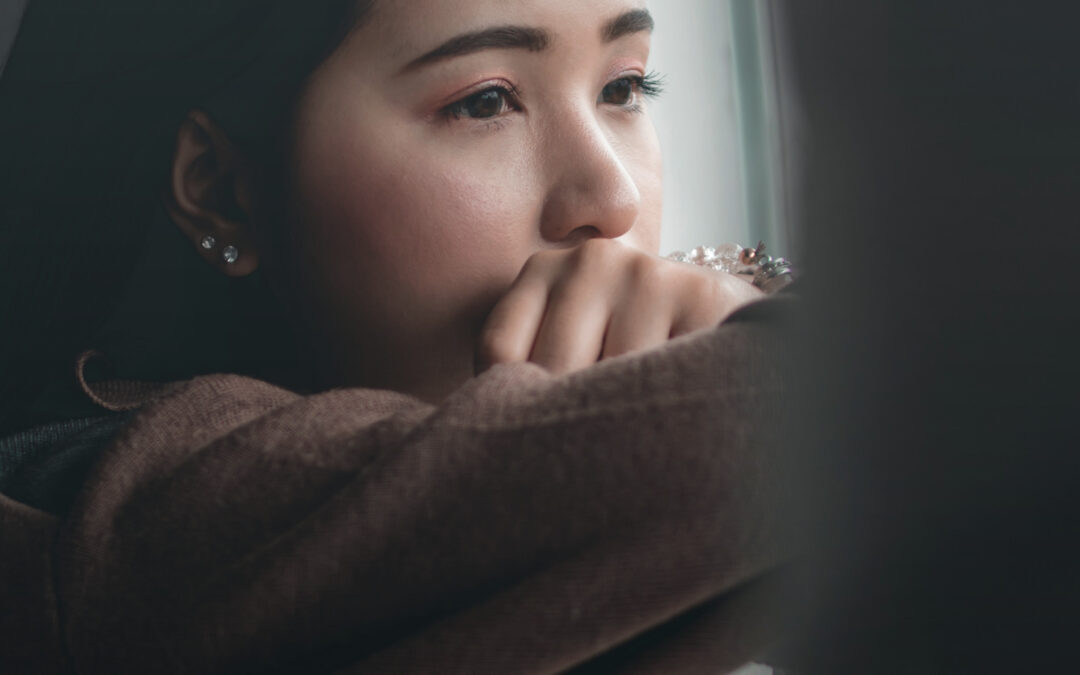
by Jessie Cooper | Oct 24, 2024
In my last blog, I took you through the origins story of Instructional ABA Consultants. In it, I shared my professional entry into applied behavior analysis (ABA) and desire for equitable care. What I didn’t share was what brought me to the field in the first place, which, ironically, is still what drives so much of my life today. I’d like to take you to that beginning in hopes that it will bring us together today.
In the early 2000s, I was a bustling new college student with a quest for knowledge. I have always been motivated to learn but this time I got to choose what I wanted to know. After the swift and painless death of the dream to be a professional actress, I settled into the campus of The Ohio State University. I loved children, loved to learn, and deeply disliked suffering. These together placed me in the College of Human Ecology where I was shocked to find an actual place on earth that wanted to teach and study what I loved! I joined the college with the hopes of being a kindergarten teacher yet my core interest was the impact of adverse childhood experiences on human development. I knew in my gut that our experiences in early childhood would shape the quality of our future. What I didn’t know was why the people hurting children were hurting them; I just knew it was wrong.
Education to Behavioral Science
While at OSU, I immersed myself in classes, research, and field experiences, and went as far as to write an honors thesis under the brilliant Dr. Stephen Gavazzi. In my work with Dr. Gavazzi, I studied the impact that negative home environments and race play on truancy. Each book I opened, class I took, and paper I wrote confirmed my belief in the importance of early childhood. What I couldn’t seem to understand was why others were hurting children and then why systems supporting children weren’t yielding better outcomes. As I finished my undergraduate studies in early childhood education, my focus shifted from becoming a teacher. I still had questions about why hurtful behavior happens and how through that understanding help can be provided. It was this very query that landed me at The Chicago School of Professional Psychology (TCS) in the fall of 2010. A year later, I joined a mobile crisis team in Illinois.
The years that I spent at TCS were eye-opening. I was surrounded by like-minded people who also wanted to know why behaviors occurred and the impact on the environment! Each day at TCS was like Christmas morning to me. The science of human behavior was exactly what I was looking for. Our science’s theory of human behavior is that all behaviors occur because of a person’s interaction with the environment. Behavioral scientists then observe, analyze, and study exactly why a person’s behaviors occur following strict scientific principles. In understanding why the behaviors occur, behavioral scientists are then able to create treatments to change behaviors. ABA can be used across a wide modality of behavioral treatments; my focus was of course on maladaptive behaviors and supporting autistic children. My work with the crisis team then broadened the population I was serving to adults with developmental disabilities.
How to Use ABA the Right Way
This is the work I’ve written to you about, that we still do today at Instructional ABA Consultants. We use the science of applied behavior analysis to improve the lives of children with autism and adults with developmental disabilities. Unlike so many other ABA companies, we still provide crisis support and my team now trains on Safety Care, a training program I learned over a decade ago. We also pay our RBTs a higher rate when working with our clients who qualify as a crisis because I know first-hand how challenging that work is – challenging and rewarding.
So what is it that the principles of ABA allow us to see that we cannot see without it? I used to think about everything when I was a radical behavior analyst. I was so in love with the science because it explained everything. Almost two decades later I’ve come to understand that ABA provides a foundation of understanding why behaviors occur.
ABA focuses heavily on observing what comes before and after a behavior to understand why the behavior occurs. We call this our ABCs – antecedent, behavior, consequence. By studying this pattern of behavior, we can almost always find why behavior is happening in the moment. What we can’t see is the vast undercurrent (or covert events) inside of the person engaging in behavior. The longer I’ve been in the field, the more I have come to ask.
“What can we see, and what can’t we see?”
Through this question, I’ve come to realize that a limitation of our field is that it is based on only what we can see. The answer of “What can we see, and what can’t we see?” is always a need not met. Hold that just for a moment; every behavior that results in pain is motivated by a need not met. Applied behavior analysis allows us to see on the surface what the person suffering is asking for, but does not look at the origin story of the wound. Personally and professionally I’ve come to believe that both are equally important.
What then can we do to negate suffering? A million and one things I’m sure. I work and live alongside people who truly believe all beings have a right to a life lived freely. To suffer is to be caged. Those million and one things are not for today. Today is to provide an answer to my question that perhaps will ignite compassion among us all.
Why do people hurt other people? They are hurting too.
Xoxo,
Jessie Cooper
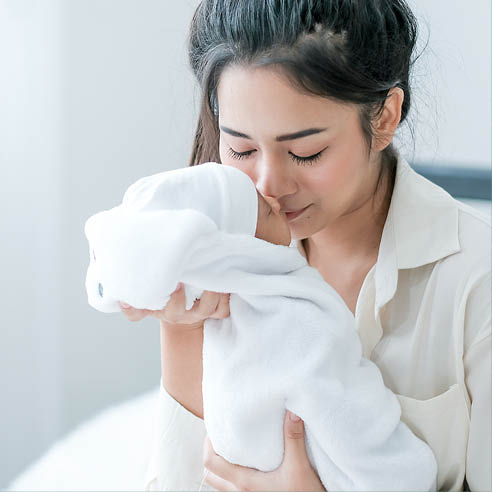
by Jessie Cooper | May 2, 2024
For all the mama’s out there I’m almost certain that the moment we found out we were going to become that mama is cemented in our mind. That tiny moment when the double lines show up or the phone call is made that your baby is coming home. Your world changes in an instant, your heart grows beyond what your chest can hold, and love and fear dance inside of you. A life, a precious life, is now yours for tending as it grows into full blossom. A life to love beyond what you’ve ever defined before.
I’ve had both of these moments; I’ve grown two beautiful sons in my womb and I’ve adopted. Each time the knowledge of becoming a mama to a new life came this love washed over me. The first time this happened was vastly different from the subsequent experiences because, well, experience…
When I became pregnant with Henry the excitement and joy of motherhood overwhelmed me. I ran to Barnes and Noble to pick up the bible for babies, “What to Expect When You’re Expecting.” Every Sunday I would leaf through my stage of pregnancy, “You’re a bean, a mango, a tiny watermelon,” in pure awe of “it’s eyelash week, you’re growing nails!” I could not get enough of the life growing inside of me. I spent hours on Pinterest designing his nursery and “style,” pushing my cart through Babies “R” Us with a veteran mama, and filling my home with everything Henry. The excitement was everything, becoming his mama was a joy I had never felt.
Eradicating Erroneous Expectations
I look back on preparing to become a mama and as I type it I have a deep love for myself. I was cherishing his life growing and floating in the wonder of becoming a mama. I can almost touch the younger version of myself, and as I do I murmur, “Oh honey, I see your love, how wonderful.” It is wonderful to hold love as you begin the journey into motherhood. It is also incredibly naive to think that rainbows and unicorns, okay Pinterest and Babies “R” Us, have anything to do with motherhood. Pinterest and Babies “R” Us have everything to do with marketing the idea of motherhood. As I pushed my first son into the world I was quickly indoctrinated into the real world of motherhood. Henry, my darling son, would not sleep for over an hour for six months with a livid refusal to be put down. Henry came to life and so did motherhood. By the end of three years, I had three sons aged 1, 1 ½, and 14. Today I have a 5, 6 1/2, and 18-year-old.
Over the past six years, I have spent more time than I can count sarcastically telling a friend, “They don’t tell you that in ‘What to Expect When You’re Expecting’…” Being a mama is the best and hardest thing I have ever done. I’m guessing that I’m not alone in this. As I write these words to you I’m continuing to navigate the journey of motherhood that I’ve just begun. Each day has tiny treasures, like warm cheeks at bedtime, and each day has something that knocks me on my ass telling me, “You’ve got a lot more to learn.”
My little sons are full of huge emotions and my oldest son is grappling with the independence of 18. What I never knew, and wish someone had told me, is that motherhood is both raising your children and rebirthing yourself. You will be faced with a million challenges both from your children and the world that surrounds them (and you). In each of these moments is the paradox of, “Can you respond as the sturdy leader of your family, or are you back in the dirt working through it, hoping to come out of it with either a solution, or peace, or both?”
Earthing to Center on Love
I think of those “dirt moments” as the ones that knock me on my ass. The times I shout and wish I wouldn’t, the times my children lay a line of my so hurtful I cringe, that one time someone who will not be named threw a taco because it had sour cream followed by, “Bitch!”, and every time the world hands us something harmful or hard that I’m supposed to have the answer for. This is the dirt, the earth, the raw pain of parenthood paired with the soft remembrance of the gift of earth and life. In the dirt I envision myself rolling my pant legs up, planting my feet (or cheek depending on the day), and breathing deeply into it. The salt of my tears dance with the dirt as I tap my own heart, “I am love,” I remind myself, “I am love.” In the dirt I tell myself, I have more to learn, that this thing that has brought me here again needs a tender, open heart to listen, and so I do.
The time I spend in the dirt is vastly different each time I find myself there. My youngest son likes to do this trick. He asks me my name, taps his nose, asks me what it is, and then giggles, “Jessie, nose, nothing.” My little man giggles, yet I touch my nose each time I am in the dirt because it reminds me that I know nothing of this world. Each moment of parenthood that has brought me here reminds me that I am also a life and a life that is learning. This willingness to sit with what I do not know opens my heart to my children and me. When I do not know what to expect, the only thing I can expect is to humble myself enough to be open to the love that brought these children to life.
Motherhood may not come with bows and Instagram-perfect feeds. By the time I was pregnant again, I bought a pack of Pjs. It turns out I cloth-diaper, breastfeed, and co-sleep my babies. It also turns out that raising a teenager is harder than holding a baby for six months. And yet, yet… Motherhood has everything I could not expect and more. Motherhood is carving me into the woman that has always been inside of me, allowing me to shape my sons into the men they will always be. Motherhood is a tribe within us all, knowing we are not alone as we raise ourselves and our children in this world.
Xoxo,
Jessie
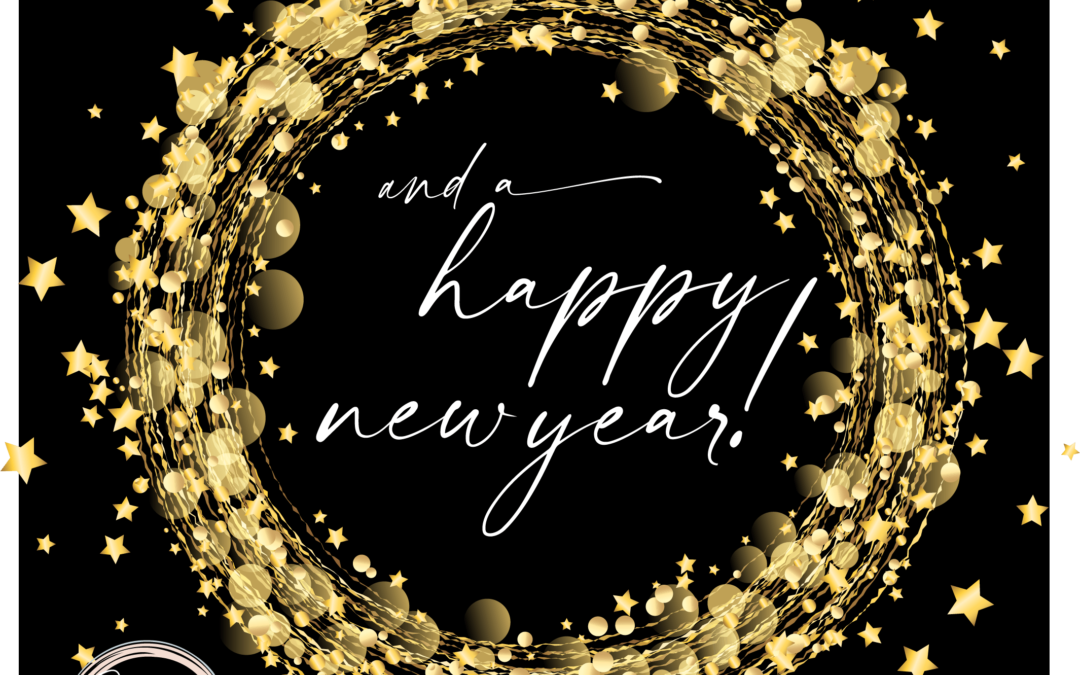
by Jessie Cooper | Jan 4, 2024
As I sit to write to you this morning, it might in fact be the first time I’ve sat in a week. Well, sat without the echo of “Mom!!!” ringing in my ears or sat without shuffling to the next holiday activity. Like many of you, I’m coming off a week of Christmas, a family birthday, and a happy new year. I’m just going to say it, that shit was intense. On my drive home last night I called my sister, “Who decided this?” I whined, “Who decided that we’re supposed to spend an entire month planning for Christmas, spend an ungodly amount of money, eat more sugar than our bodies can hold, and keep a LIVE tree alive? Anyways, I’m pretty sure I’m Buddhist.” My sister laughed, followed by the validation of, “Rough week?” It was joyfully packed with gifts, family, parties, food, squealing children, and yes, exhaustion.
Tradition vs Reality
I’m going to be honest with you, I thought I had set better boundaries with myself around the holiday. I might have been boastful, “I only send Christmas cards if it feels right!” You know little comments like that make me feel as though I was choosing how to celebrate the holiday. I thought I was doing a standup job at this until one of the highlights of my week was realizing my closet has a pocket door. You heard me right, a pocket door! When needed I could slip inside for quiet, breath, and let the busyness melt off of me until I heard the ringing of, “Mom!!” This holiday season, for me, didn’t bring peace on earth, it brought life at its fullest and emotions at their highest.
Anyone else? Surely I’m not alone in trying to make our holiday special only to be left lying next to our partner with a fist bump of, “We did it” then crawling into a cocoon of sleep. Yes, my holiday was filled with Gingerbread houses, cookies, lights, presents (the everloving candles in the window that take battery), Santa, Christmas cards, cheese balls, ham, and sure, a little whiskey in the eggnog. Those tiny moments and activities did bring tradition and family together. Yet those tiny moments collectively stole me (and my children) from our presence. I planned for the holiday only to be whisked away in a flurry of my plans. It went well enough; tantrums came as well as laughter. But in my lifetime I’m not looking for, “well enough,” I’m looking for “rooted.”
What can be done in reflection? Of this, I’m not certain of the right answer. The truth is some of my favorite childhood memories come from Christmas. Not the gifts (ask my mama, I was not a gracious receiver), but the traditions and time together with family. I want to recreate this for my children and actually like doing the Christmas traditions. You can bet I still hide a pickle on my tree. You can also take a bet if, after a second morning of stealing Christmas candy before breakfast, I threw it all away. Any takers, do you think I did? It was like $50 worth of candy, and that my friends is the price of a cute crop sweater thrown away.
This little dichotomy is everything; tradition versus daily reality. I tried to build Gingerbread houses that had expired unbeknownst to me, we had tears. I tried to put ornaments on the tree after a Christmas parade, there was hitting over whose ornaments were whose. I tried to ice cookies at 8:00 pm, but there was a full-blown tantrum because I wouldn’t let my son mix the red one (Jesus help me, it stains!). I tried to buy what they wanted from Santa, but it was found during hide and seek becoming a gift from Mommy. This was then followed by the days of, “Why didn’t Santa get me…” and mentally screaming “Because Mommy is Santa and you still got the toy!!” This list goes on exhaustively of planning traditions and navigating life. The little mantra that got me through was “Maybe Christmas perhaps doesn’t come from a store, maybe Christmas perhaps means a little bit more.” The Grinch and my pocket door; saviors of Christmas.
The Bustle of “Should”
Has this happened to you, darling? Did you plan for a beautiful holiday season only to be knocked down by parenting through the holiday season? As you sip your coffee of the new year, are you also calling your sister exclaiming, “WTF was that?” I’m guessing to some extent all of us are because the hamster wheel of the American holiday is exhausting and children are tiring all on their own. Together, of course, they make the perfect storm for moms and dads alike. That alongside a healthy dose of wanting to make traditions perfect. I suppose darling, I got lost in the bustle of should.
I do not have a proposed solution from grappling with tradition and reality. The only thing I know to be true is that when I find myself lost in should, I have to shift and actively choose what my soul needs to thrive. If I want to be rooted, I have to choose to plant myself in stillness. Stillness is what I could not find this holiday. I am still determining what we’ll put down next Christmas (it will be something..). But I do know what I need to pick up today and through my next busy season is air. Air that is breathed in against the dashing stillness of life.
Intentional pausing, stillness, and breath are always a path back to my roots. My darlings, what were you doing because you should and what must you choose for yourselves to come back home?
I’m breathing in, holding my breath for a count of 10, and exhaling you all A Happy New Year.
Xoxo,
Jessie Cooper
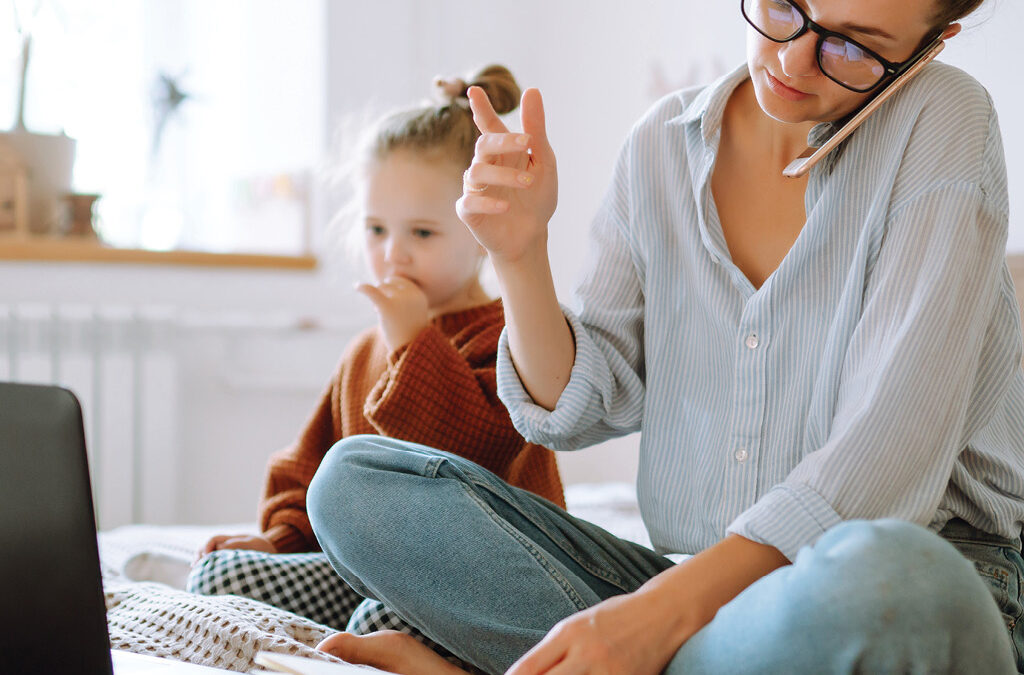
by Jessie Cooper | Aug 31, 2023
It’s been almost two months since I’ve written, that’s a record for me since I began these blogs nearly three years ago. It has always been my deep hope that my writing brings you a little closer to yourself. That’s why writing this past summer became impossible for me. You see, in order to write about living in a way that you’re in touch with yourself, I have to be in touch with myself. This summer I kept telling my friends when I would finally get around to seeing them, “I haven’t seen me either!” Just yesterday I was setting up our pool, filling my cart with Truly’s and popsicles to welcome summer. Yet somehow today I’ve sent two of my boys off to school with summer on our heels. I think if I had written to you this summer it would have been in memos and thumbs up. “We’re still here, everything’s A-Okay, shit; things aren’t okay, never mind, we’re fine…”
When Busy Takes the Wheel
Has that ever happened to you? Have you been in a spot in life where hearing yourself seems impossible? Where the demands of your life or the pleasure you choose (like summer vacations) become your driving force? I am certain in modern America we have all felt this way. Three years ago I chose to move from the suburbs of Chicago to the country of Ohio to denounce a bustling life the best I could. This summer I felt guilty for not leading by example. In the years that I’ve spent writing, I’ve also lived and breathed in a new way that I am always excited to share, even when my life was hard in impossible ways. Slipping into busy felt off-kilter from my integrity. Then I remembered that the human experience has seasons. Even if being busy isn’t what I would choose, it doesn’t mean I did anything wrong. Know darling, if busy is running your life that you’re doing anything wrong either.
Do you ever feel this way? That life has slipped into the driver’s seat and all of a sudden it’s demands are somehow the boss of you? I know many of my girlfriends feel this way about back-to-school more than the summer months. Their children are brimming with activities they love which means dinner gets crunched in at 4:00 for nine months with full weekends to follow.
We all have seasons of our lives that seem to run a schedule of their own. “How then,” I asked myself, “do we stay connected to our presence and the presence of life during this type of season?” I wish I had a perfect answer for this and I don’t. I can tell you the little things I tried through our bustling summer that helped me stay connected to myself in small ways. I can also tell you what I’ve realized only came when silence greeted me when my children went back to school. I’ll share what I’ve reflected on in hopes that whatever season you are in, you find time to hear your own heart.
Taking Big Lemons to Make Tiny Lemonade
In the summer months, when I felt myself slipping away into busyness, I no longer had my self-care routine down. This is what tipped me off my axis. My usual six to seven workouts a week crumbled into weeks where walks were the best I could do. Our eating as a family teetered between eating at home, then traveling and grabbing Subway while my children scarfed McDonald’s. My daily meditation practice was replaced by praying the children would nap and oftentimes falling asleep beside them in a heap of exhaustion. Choosing my schedule at work, where I know I’m most productive, got squeezed into child-free moments. My workout routine, the food I eat, and intentional moments of silence as well as when I work, is my self-care routine. With it swept out from under my feet I did two things every day to carry myself through.
The first thing I elected to do was to make the best choice possible daily that would bring some type of care to my being. I couldn’t look ahead to the week, but I could make small choices daily that felt in alignment with my integrity. I could make the best food choice in a moment, find small ways to move my body, and discover moments to find silence. Even if the moments of finding silence were simply standing outside with bare feet and breathing. As the days pushed me along, I tried my best to find moments of pause and to ask myself what I needed just that day. And, when there were days when no choice seemed to be available, I gave myself grace. I would hold my hand to my heart, take a deep breath, and allow myself to know that the next day I would try again. As life whirled around me, I tried in small ways to provide myself with the care I needed. This darling, is something that I want for you too. To find the small ways, in busy times that you can offer care and attention to yourself.
After I was able to accept my busyness and that small choices of care were my only option, the next thing I sunk into was gratitude. Yes, we were busy and I was out of a routine, but I was also surrounded by my children and the people we love all summer long. Our days without structure were often days surrounded by playdates, vacations, mom’s night out, family, and uninterrupted time with my boys. We were busy but we were also incredibly loved. When the work day ended and a playdate rolled up, I held my hand to my heart and whispered, “Thank you,” for the moments with our friends. If I could cook a dinner they didn’t have to, I knew that soon they would do the same for us. Holding gratitude for each tiny moment of connection kept me well-connected to their love as well as my own.
These two little things; choosing the best option at the moment and holding gratitude for the people in our lives are what carried me through my busy. When I laid my tired head to bed every night, sometimes saying hello to myself for the first time, I laid my head with gratitude and a full heart. This darling is what I wish for you in your busy days ahead. To make small choices that serve your body, soul, and spirit and to notice any type of love being offered to you. Then my darling, I want you to open your arms to that love, and whisper, “Thank you,” while offering yourself grace in your busy season.
Xoxo,
Jessie Cooper







